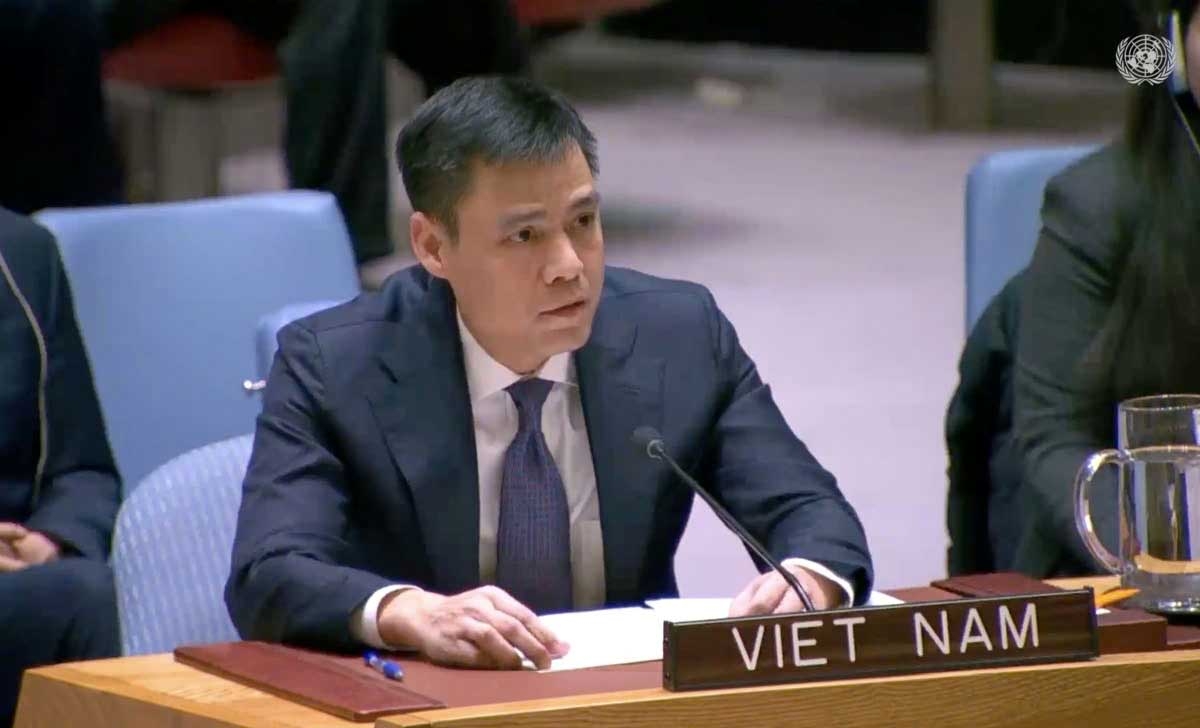Vietnam welcomes Middle East ceasefire agreements
VOV.VN - A Vietnamese diplomat praised recent international diplomatic efforts resulting in ceasefire agreements in Gaza and the Middle East during a United Nations Security Council debate on the Middle East and Palestine in New York on January 20.

Addressing the event, Ambassador Dang Hoang Giang, head of Vietnam’s Permanent Mission to the United Nations, noted that such efforts help offer prospects for ending the conflict in Gaza and bringing about lasting peace in the region.
He emphasized the importance of adhering to international law, the UN Charter, relevant UNSC and General Assembly resolutions, and interim measures by the International Court of Justice (ICJ).
The implementation of ceasefires must be accompanied by protecting civilians and infrastructure, releasing all hostages, and ensuring uninterrupted humanitarian aid to the people across Gaza, he stressed.
The ambassador also highlighted the key role of the United Nations Relief and Works Agency for Palestine Refugees in the Near East (UNRWA) in realizing the agreements.
On this occasion, Giang reaffirmed Vietnam’s support for a two-state solution based on pre-1967 borders and urged the international community to expedite efforts to rebuild Gaza, restore socio-economic stability, and strengthen foundations for lasting peace.
The meeting featured remarks from UN Secretary-General Antonio Guterres, alongside foreign ministers, ambassadors, and representatives from over 60 UN member states.
The Secretary-General and other delegates commended the ceasefire agreements announced between Israel and Hamas on January 15, 2025, as well as between Israel and Lebanon, that came into force on November 26, 2024.
They also emphasized the formation of new governments in Lebanon and Syria as positive steps toward long-term peace in Gaza and the Middle East.
However, they also expressed concerns about the potential resurgence of violence, and underscored the need for a comprehensive, just, and sustainable resolution to the Palestine issue and other regional hotspots, in line with international law and the UN Charter.



